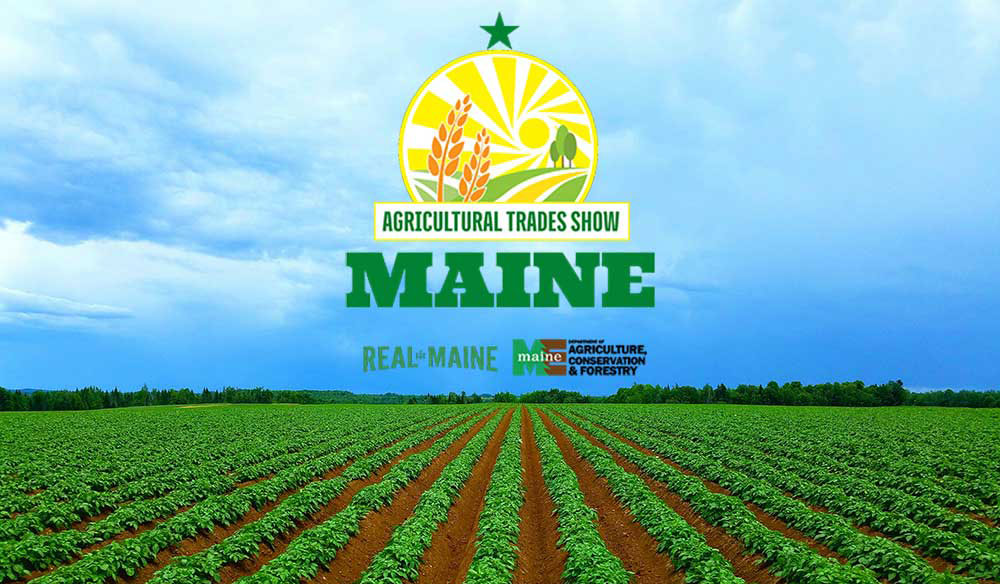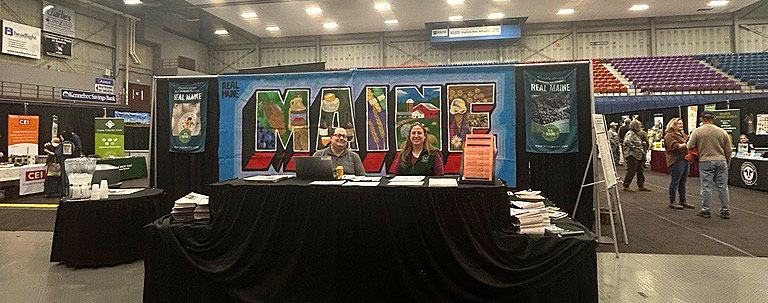- Navigator
- Northeast
- Agriculture and Forestry
- Industry Analytics and Strategy
- State

On January 10, I attended the Maine Agricultural Trades Show in Augusta, which brought together farmers, industry professionals, and agricultural enthusiasts.
Given Camoin Associates’ work around both the Maine forest products sector and food economy, this was the perfect venue to meet key players in the state and learn what is currently top of mind for people in these industries.
The three discussions that stood out to me were about unions and the minimum wage on farms, land use and succession planning, and the lack of awareness or utilization of available services.
One of the most heated discussions was related to diverging options about minimum wage, unions, and benefits for workers within the farming community.
On one side was the sentiment that farming should be perceived as a social service rather than a traditional business. Advocates argued that farms are fundamentally different and should not be subjected to the same employer/employee expectations. They voiced concerns about the practicality of paying workers significantly more than the farmers/owners themselves earn, citing high input costs (i.e., the production and operational costs necessary to create a product, including raw materials, labor, utilities, and overheads).
On the other side of the debate, others argued that the current systems in place, such as low wages, an absence of unions, and a lack of benefits, contribute to the exploitation of farm workers and perpetuate injustices, including those tied to white supremacy. They argued that farmwork is not a viable career pathway for these reasons and pled with the Maine Department of Agriculture, Conservation & Forestry representative to make fundamental policy changes.
Amidst these passionate discussions, concerns about land use planning were voiced. Attendees expressed concerns about agricultural land being tied up in easements, limiting farmers’ ability to cultivate it. They questioned why easements can be broken for housing but not agriculture, and asked why housing is considered more important than farming, which serves a crucial societal role.
The lack of succession planning within the industry was a pressing issue as well. Top of mind was the fear that without proper succession strategies in place, businesses may fall apart and valuable farmland may go uncultivated, affecting both farmers and consumers.
On the brighter side, the trade show shed light on promising opportunities and introduced organizations dedicated to supporting the agricultural community.
Many attendees seemed unaware of the resources available to them, such as SCORE, AgrAbility, and other cooperative extension services. These organizations work tirelessly to provide assistance, information, and support to farmers, ensuring they have the tools they need to navigate challenges and seize opportunities.
The Maine Agricultural Trades Show served as a forum for diverse perspectives within the state’s agricultural community. Discussions about minimum wage, unions, benefits, land use, and succession planning were made even more valuable by the presence of policymakers and high-level industry representatives in the room. Tables of resources and services information provided hope for those facing ever higher input costs and an uncertain future.
After a day spent with those who navigate this complex landscape, it is evident that creating a sustainable and equitable future for Maine agriculture requires an approach that brings all parties to the table, from policymakers to farmhands.
Learn more about Camoin Associates’ industry analytics and strategy services.
📍 Related Articles:




